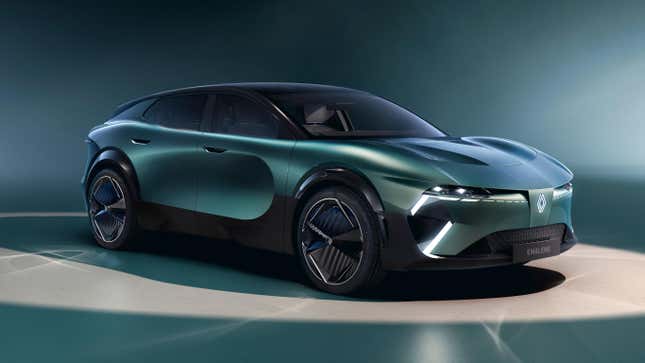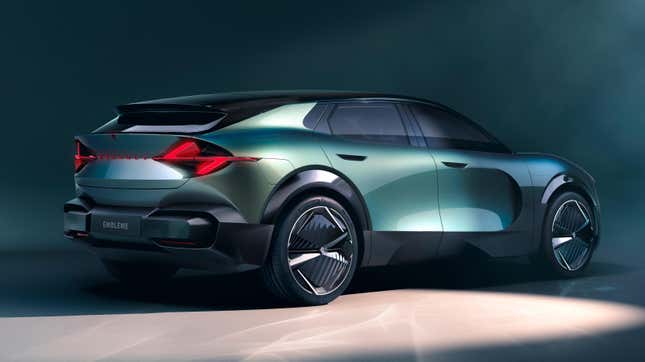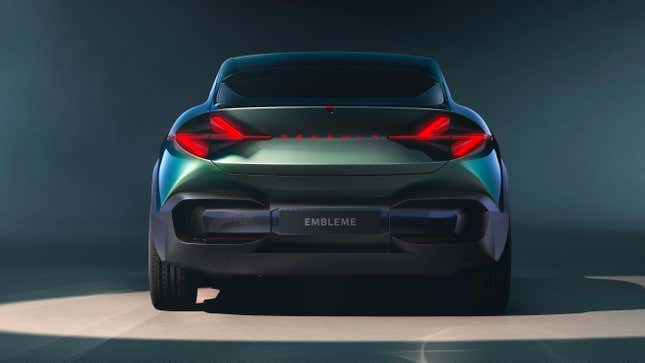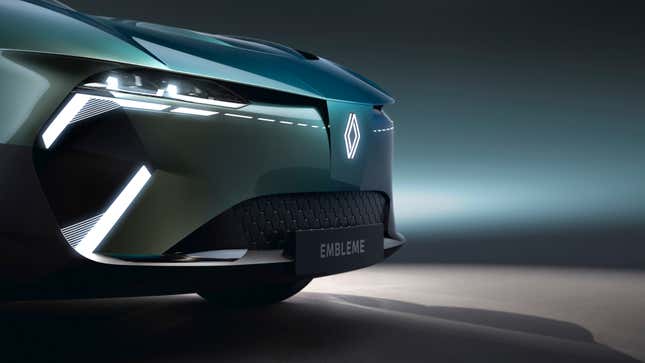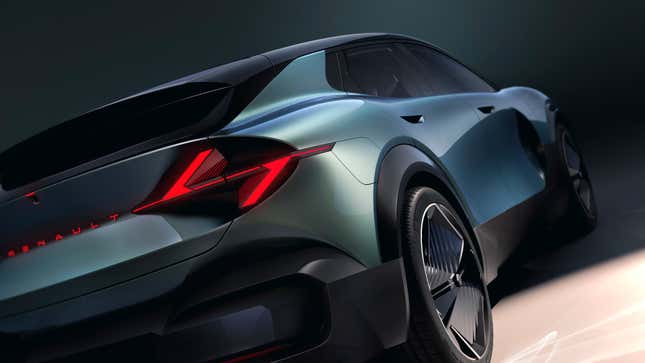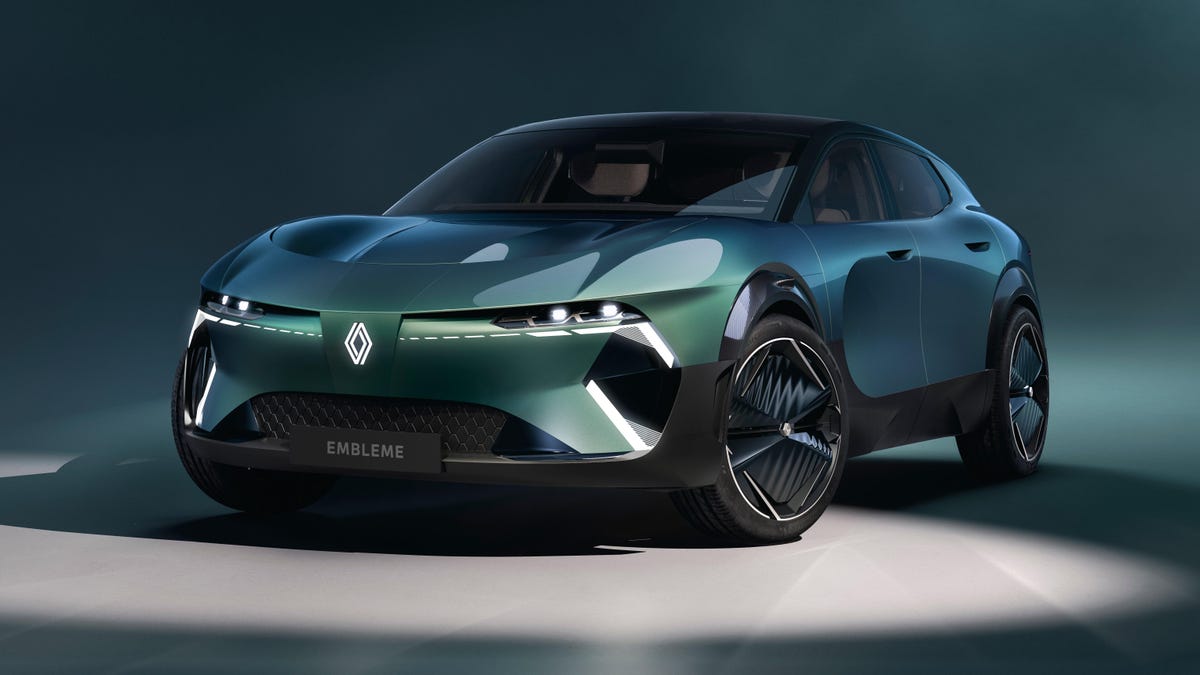A good logo is vital for growing a brand, and automakers are no different. Even people who are the furthest thing from car enthusiasts can easily identify car companies from their emblems, especially as some brands have stuck with the same logos for decades. Renault has used a diamond-shaped logo since 1925, and though it’s gone through eight redesigns in the following 100 years, it has remained instantly recognizable. At this year’s Paris Motor Show, Renault has revealed the aptly named Emblème concept, a hydrogen wagon that uses the diamond logo as a styling motif throughout the whole car.
The purpose of the Emblème, according to Renault, is to showcase technologies that will help it achieve its goal of reaching net zero carbon by 2040 in Europe, and the company says the concept would have lifetime greenhouse gas emissions that are 90 percent less than an equivalent new car. To that end, the Emblème uses all sorts of recycled materials and is made with production processes that use renewable energy. Its 40-kWh NMC battery pack is lighter, smaller and more efficient than traditional EV batteries, providing a range of a couple hundred kilometers and powering a 215-horsepower electric motor that uses no rare earth materials.
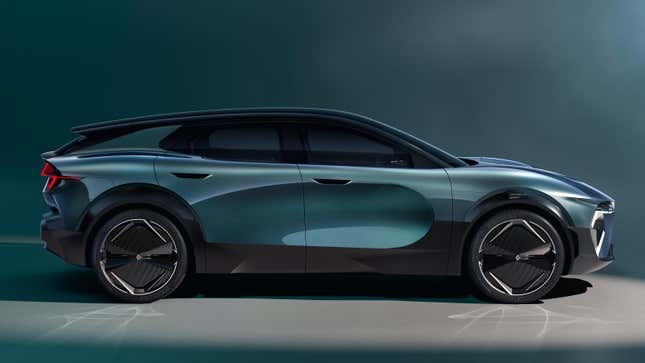
The rear-wheel-drive Emblème also has a 30-kW hydrogen-powered fuel cell with a 2.8-kg tank, enough to cover over 200 miles. Taking both halves of the powertrain into account, Renault says a 1,000-kilometer journey would take the same amount of time as an internal combustion car, requiring just two five-minute refueling stops, and on a trip from Paris to Marseille, 75 percent of the electricity consumed would be produced by the fuel cell. Despite all of that, Renault says the Emblème weighs less than 3,900 pounds.
All that is super cool and good and I definitely am glad automakers are at least telling us that they’re attempting to save the planet. But I just want to talk about the Emblème’s phenomenal shooting brake styling, which Renault says previews its future design language. The Emblème is about six inches longer than a Hyundai Ioniq 5 with a four-inch-shorter wheelbase, and it’s about as tall as a BMW 5 Series at 59.8 inches tall. It looks really fantastic in profile, with a swooping coupe-like roofline and narrow greenhouse that give it a drag coefficient of 0.25, better than a BMW i8. Renault says the Alpine Formula 1 team helped develop the Emblème’s aerodynamics through its digital simulation technology.
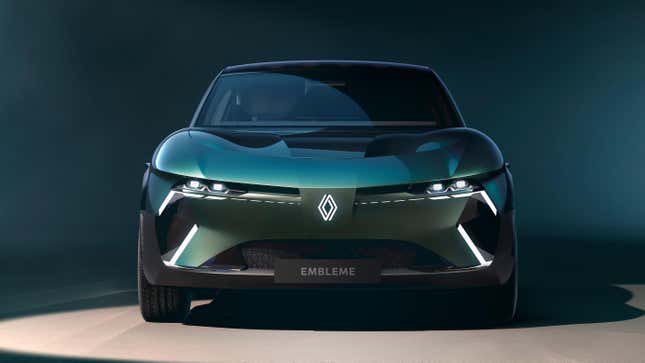
Renault says the Emblème “explores new paths in design” inspired by its iconic logo, and that’s immediately apparent when you look at the front end. Air curtains at the corners of the front bumper are shaped like the diamonds and use blades of lighting in a clever way to form a DRL signature, with the main headlights being slim units beneath the brow-like hood that channels air toward the windshield. The lower bumper intake features dozens of little diamonds, as does the edge of the hood where it meets the windshield, and of course the diamond in the center of the nose is illuminated.
The French have been putting out all sorts of fantastically absurd wheel designs recently, and the Emblème’s use a combination of ribbed surfaces and raised lines to create an abstract diamond shape that looks truly incredible and work to guide air around the car. Its wheel arches have a straked pattern that matches other detail areas, with integrated rear-view cameras sitting like little fins at the top of the front arches. I especially love the pill-shaped side surfacing, which creates an opening for air to exit behind the front wheels.
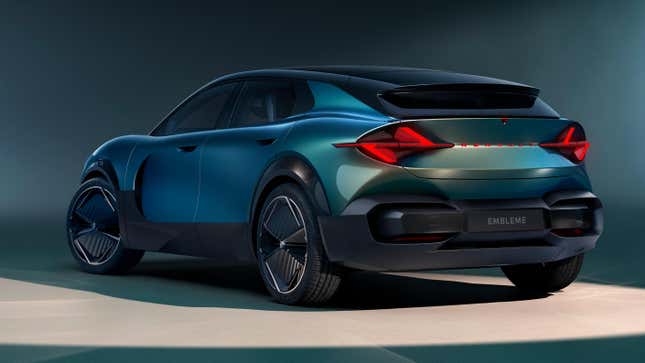
At the rear the abstract diamond theme continues with Z-shaped taillights that use three-dimensionality to remind you of the Renault logo without plainly being the diamond. A small line of light that extends onto the rear fenders forms the shape of the fuel door, which is also shaped like a diamond. There’s more cool surfacing going on back here too, like the concave pill-shaped tailgate, and an active diffuser tilts downward to reduce drag and has more of that straked texture.
Renault’s initial release says nothing about whether a car like the Emblème will actually be sold, but Renault has a pretty great recent track record of putting its wild concepts into production with minimal changes. At the very least, its design and technology ideas will inform future Renault production cars. We’ll learn more when the Emblème makes its full debut at the Paris Motor Show later this month.
